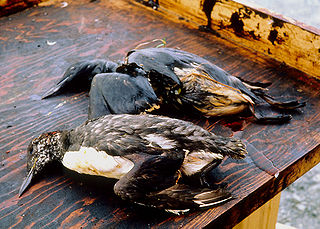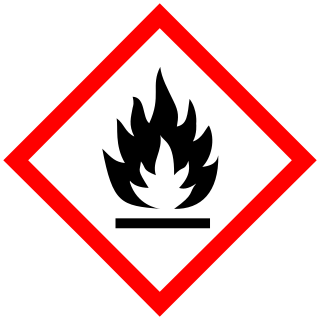For natural disasters in the British Isles, see:
For natural disasters in the British Isles, see:

A disaster is a serious problem occurring over a period of time that causes widespread human, material, economic or environmental loss which exceeds the ability of the affected community or society to cope using its own resources. Disasters are routinely divided into either "natural disasters" caused by natural hazards or "human-instigated disasters" caused from anthropogenic hazards. However, in modern times, the divide between natural, human-made and human-accelerated disasters is difficult to draw.

A natural disaster is the highly harmful impact on a society or community following a natural hazard event. Some examples of natural hazard events include: flooding, drought, earthquake, tropical cyclone, lightning, tsunami, volcanic activity, wildfire. A natural disaster can cause loss of life or damage property, and typically leaves economic damage in its wake. The severity of the damage depends on the affected population's resilience and on the infrastructure available. Scholars have been saying that the term natural disaster is unsuitable and should be abandoned. Instead, the simpler term disaster could be used, while also specifying the category of hazard. A disaster is a result of a natural or human-made hazard impacting a vulnerable community. It is the combination of the hazard along with exposure of a vulnerable society that results in a disaster.
This page features lists of species and organisms that have become extinct. The reasons for extinction range from natural occurrences, such as shifts in the Earth's ecosystem or natural disasters, to human influences on nature by the overuse of natural resources, hunting and destruction of natural habitats.

A crisis is any event or period that will lead to an unstable and dangerous situation affecting an individual, group, or all of society. Crises are negative changes in the human or environmental affairs, especially when they occur abruptly, with little or no warning. More loosely, a crisis is a testing time for an emergency.

The Caribbean Disaster Emergency Management Agency (CDEMA) is an inter-regional supportive network of independent emergency units throughout the Caribbean region. Formed on September 1, 2005, as the Caribbean Disaster Emergency Response Agency (CDERA), it underwent a name change to CDEMA in September 2009.

An environmental disaster or ecological disaster is defined as a catastrophic event regarding the natural environment that is due to human activity. This point distinguishes environmental disasters from other disturbances such as natural disasters and intentional acts of war such as nuclear bombings.
Executive departments are the largest component of the executive branch of the government of the Philippines. These departments comprise the largest part of the country's bureaucracy.

Emergency management or disaster management is a science and a system charged with creating the framework within which communities reduce vulnerability to hazards and cope with disasters. Emergency management, despite its name, does not actually focus on the management of emergencies, which can be understood as minor events with limited impacts and are managed through the day-to-day functions of a community. Instead, emergency management focuses on the management of disasters, which are events that produce more impacts than a community can handle on its own. The management of disasters tends to require some combination of activity from individuals and households, organizations, local, and/or higher levels of government. Although many different terminologies exist globally, the activities of emergency management can be generally categorized into preparedness, response, mitigation, and recovery, although other terms such as disaster risk reduction and prevention are also common. The outcome of emergency management is to prevent disasters and where this is not possible, to reduce their harmful impacts.
The Natural Disasters were a professional wrestling tag team composed of Earthquake and Typhoon who worked in the World Wrestling Federation between 1991 and 1993. They won the WWF Tag Team Championship once.

Natural disasters in China are the result of several different natural hazards that affect the country according to its particular geographic and geologic features affecting both humans and animals.

The National Agency for Disaster Countermeasure, abbreviated as BNPB, is the Indonesian board for natural disaster affairs. It was established in 2008 to replace the National Disaster Management Coordinating Board. BNPB is directly responsible to the President of Indonesia and the chairman is directly appointed by the President.

Disaster risk reduction (DRR) is a systematic approach to identifying, assessing and reducing the risks of disaster. It aims to promote sustainable development by increasing the resilience of communities to any disasters they might face. DRR is normally used as policies intended to "define goals and objectives across different timescales and with concrete targets, indicators and time frames." The concept is also called disaster risk management (DRM).

The following are lists of disasters.

A hazard is a potential source of harm. Substances, events, or circumstances can constitute hazards when their nature would allow them, even just theoretically, to cause damage to health, life, property, or any other interest of value. The probability of that harm being realized in a specific incident, combined with the magnitude of potential harm, make up its risk, a term often used synonymously in colloquial speech.

Climate change is a critical issue in Bangladesh as the country is one of the most vulnerable to the effects of climate change. In the 2020 edition of Germanwatch's Climate Risk Index, it ranked seventh in the list of countries most affected by climate calamities during the period 1999–2018. Bangladesh's vulnerability to the effects of climate change is due to a combination of geographical factors, such as its flat, low-lying, and delta-exposed topography, and socio-economic factors, including its high population density, levels of poverty, and dependence on agriculture. The impacts and potential threats include sea level rise, temperature rise, food crises, droughts, floods, and cyclones.